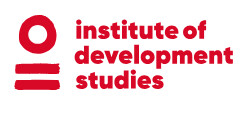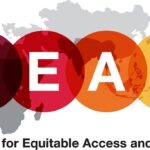
26 February, 16:00-17:30
Institute of Development Studies IDS Convening Space and online on Zoom
This Sussex Development Lecture by Dr Kathryn Moeller, is part of the series on Power, Politics and Hope. The lecture will examine the political economy of schooling during Covid-19. It draws from a co-authored chapter from the forthcoming manuscript, Silicon Futures: How Silicon Valley Venture Capitalists are Influencing Education around the World.
It brings together the theoretical frameworks of disaster capitalism (Klein, 2007) and educational capitalisation (Moeller et. al., 2024) to ask: who profited from public money during the pandemic, and how did local, state, and federal level politics and policies shape the terrain of profit from new educational technologies (edtech)?
Situated within a broader analysis of the global financial politics of schooling during this conjunctural moment, this four-year, mixed-methods case study focuses on Chicago Public Schools in Chicago, Illinois and Orange County Public Schools in Orlando, Florida, two of the US’s top 10 largest school districts, with majority Black and Latinx students.
After examining the historical currents and foundations that led to this conjunctural moment of the Covid-19 pandemic, the presentation first examines how the districts and teachers’ unions managed this crisis, to understand how their responses shaped opportunities for profit. Second, it looks at how these districts educated during the crisis through a look at the existing platforms they employed and edtech companies with whom they contracted. Third, it jumps scale to an industry level, exploring how for-profit investors invested during the height of the pandemic, the investment bubble and crash that ensued, and how, and to what extent companies and investors profited from public money. Lastly, it looks at what has happened as the “free money went away,” and considers attempts to push for democratic accountability and transparency to reign in private profit from public resources, looking towards hope for the future.
Co-authors of the chapter the lecture draws from are Kathryn Moeller, Klint Kanopka, Tyler Hook, María Fernanda Rodriguez, Shahnaaz Khan, Sonya Smyslova, and Mariam Sedighi.





